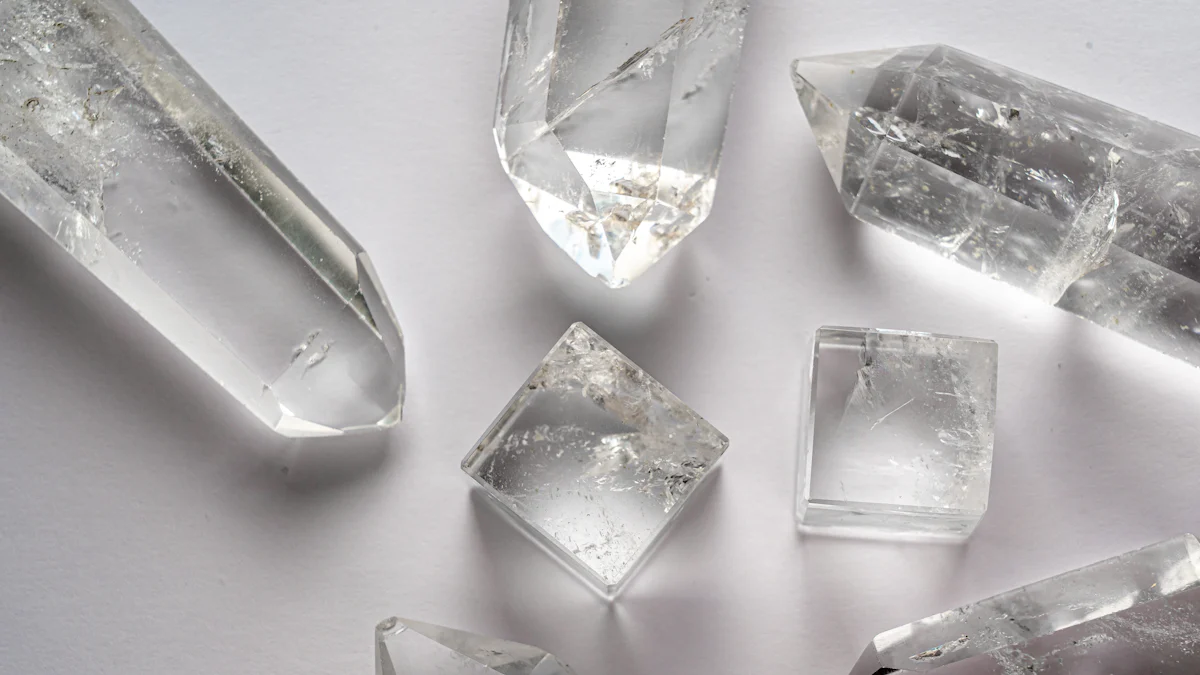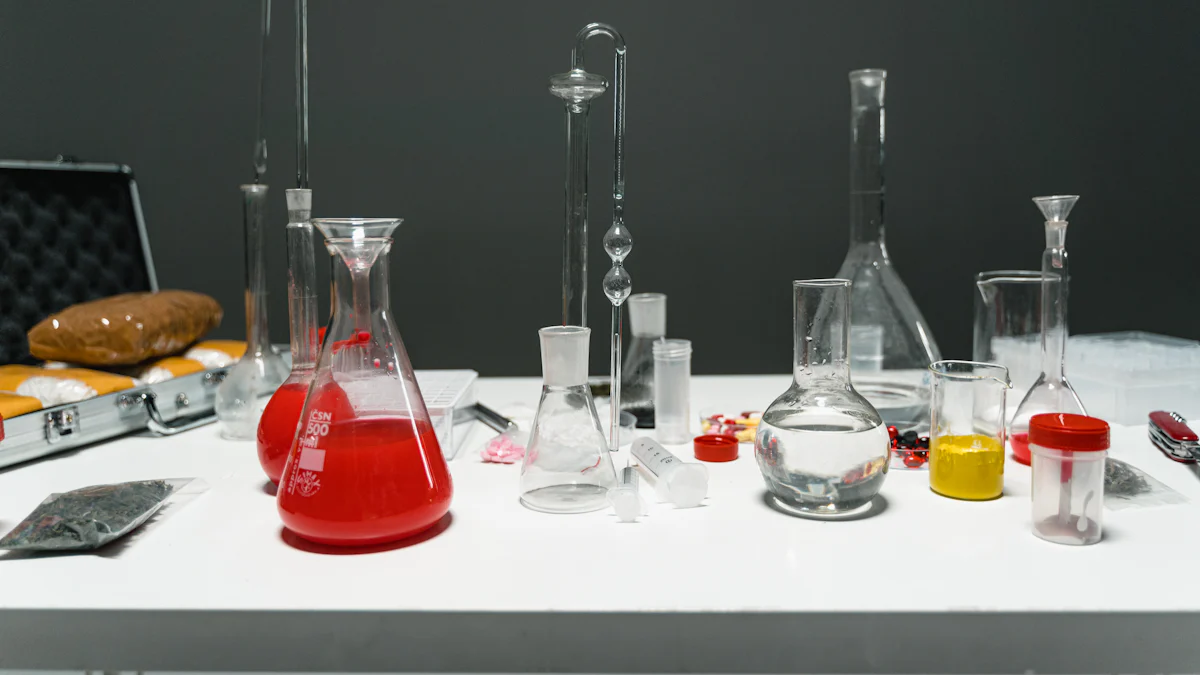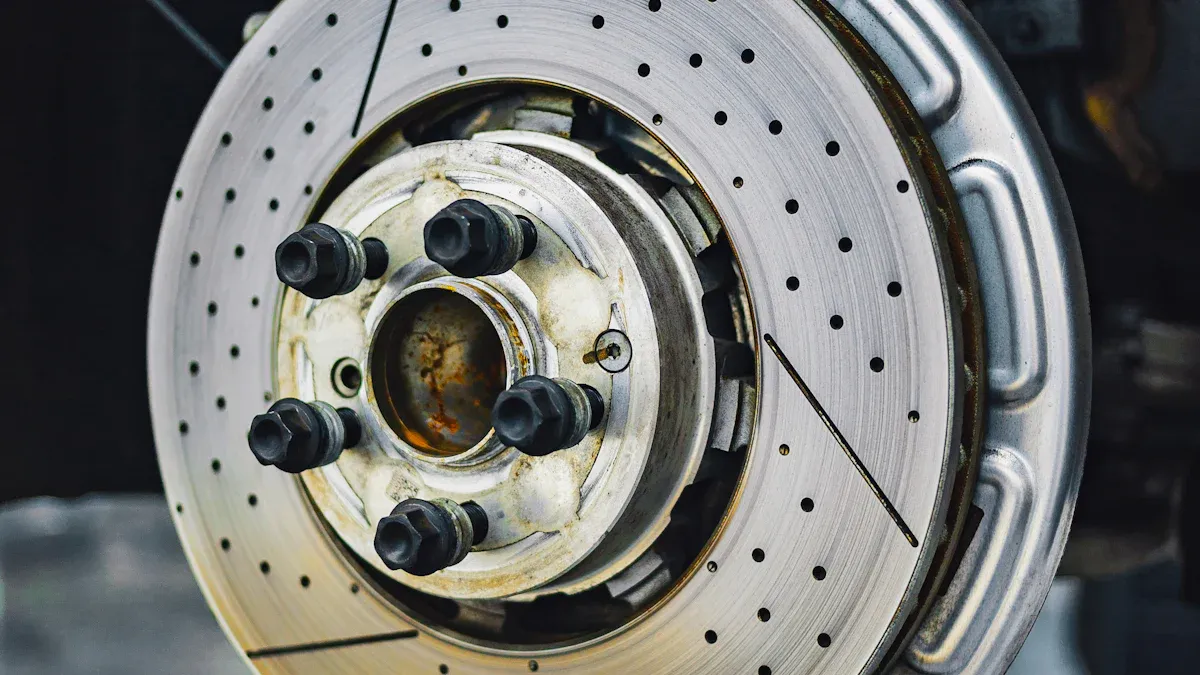
Quartz boats are essential tools crafted from high-purity quartz. You will find them widely used in laboratories and industries for their remarkable ability to handle extreme conditions. These tools serve a critical role in holding and processing materials during high-temperature or chemical-intensive procedures. Their unique properties make them indispensable for tasks requiring precision and reliability. Whether in scientific research or industrial applications, a quartz boat ensures consistent performance under demanding environments.
Key Takeaways
- Quartz boats are made from high-purity quartz, making them ideal for high-temperature and chemically reactive environments.
- Their exceptional thermal shock resistance allows them to withstand rapid temperature changes without cracking or deforming.
- The chemical inertness of quartz boats ensures that experiments remain uncontaminated, preserving the integrity of sensitive materials.
- Their transparency enables real-time monitoring of samples during experiments, enhancing precision and accuracy.
- Quartz boats are reusable and durable, reducing the need for frequent replacements and making them a cost-effective choice for laboratories.
- They play a crucial role in various applications, including semiconductor manufacturing, chemical synthesis, and material testing.
- Investing in high-quality quartz boats supports scientific research and technological advancements across multiple industries.
What Are Quartz Boats?

Definition and Overview
A quartz boat is a specialized laboratory tool made from high-purity quartz. You use it to hold, transport, or process materials in environments that demand high temperatures or chemical resistance. Its design ensures stability and reliability during experiments or industrial procedures. These boats are essential for tasks where precision and durability are critical. Their ability to withstand extreme conditions makes them a preferred choice in both scientific and industrial settings.
Materials Used in Quartz Boats
Quartz boats are crafted from fused quartz, a material known for its exceptional purity and strength. Fused quartz contains silica in its purest form, which gives it unique properties like thermal shock resistance and chemical inertness. This material allows you to use quartz boats in applications involving acids, alkalis, and organic solvents without worrying about reactions or contamination. The high melting point of fused quartz also ensures that these boats remain stable even under intense heat.
General Design and Structure
The design of a quartz boat focuses on functionality and durability. Most quartz boats feature a rectangular or oval shape with smooth edges to prevent damage to delicate materials. Their walls are thin yet sturdy, allowing for efficient heat transfer while maintaining structural integrity. Some designs include handles or grooves for easy handling, especially when working with high-temperature furnaces. The transparency of quartz also lets you monitor the contents during experiments, adding to their practicality.
Key Features of Quartz Boats
High-Temperature Resistance
Quartz boats excel in environments requiring extreme heat. You can rely on them to withstand temperatures exceeding 1,000°C without losing their structural integrity. This high-temperature resistance makes them ideal for processes like material melting, thermal analysis, and chemical reactions. Unlike other materials, quartz does not deform or crack under rapid temperature changes. This property ensures consistent performance during experiments or industrial applications. When working with high-temperature furnaces or heating systems, a quartz boat provides unmatched reliability.
Chemical Inertness
Quartz boats offer exceptional chemical inertness, allowing you to use them with a wide range of substances. They resist reactions with acids, alkalis, and organic solvents, ensuring that your experiments remain uncontaminated. This feature is particularly valuable in chemical synthesis and analytical procedures. You can clean and reuse quartz boats without worrying about residue or degradation. Their non-reactive nature also makes them suitable for handling sensitive materials, preserving the purity of your samples.
Durability and Longevity
Quartz boats are built to last. Their robust structure allows them to endure repeated use in demanding conditions. You will find that they maintain their shape and functionality even after prolonged exposure to heat and chemicals. This durability reduces the need for frequent replacements, saving you time and resources. The longevity of quartz boats makes them a cost-effective choice for laboratories and industries. By investing in a high-quality quartz boat, you ensure reliable performance over an extended period.
Transparency and Purity
Quartz boats stand out for their remarkable transparency and purity. The transparent nature of quartz allows you to visually monitor the contents during experiments. This feature proves invaluable when precision is critical, as it lets you observe changes in materials without interrupting the process. You can easily track reactions, melting points, or any transformations occurring within the quartz boat.
The purity of quartz boats ensures that your experiments remain uncontaminated. Fused quartz, free from impurities, minimizes the risk of introducing foreign elements into your samples. This high level of purity makes quartz boats ideal for sensitive applications, such as chemical analysis or material synthesis. You can trust them to preserve the integrity of your work, especially when dealing with delicate or reactive substances.
When you use quartz boats, you benefit from their ability to maintain clarity and cleanliness over time. Their surfaces resist staining and residue buildup, making them easy to clean and reuse. This combination of transparency and purity enhances the reliability of your experiments, ensuring accurate and consistent results.
Applications of Quartz Boats in Laboratories

Sample Heating and Thermal Processing
You can rely on a quartz boat for precise sample heating and thermal processing. These boats handle extreme temperatures without losing their structural integrity, making them ideal for controlled heating experiments. In laboratory settings, you often use them in tube furnaces to heat materials evenly. Their ability to resist thermal shock ensures that rapid temperature changes do not compromise your results. Whether you are melting substances or conducting thermal analysis, a quartz boat provides the stability and reliability you need for accurate outcomes.
Chemical Reactions and Synthesis
Quartz boats play a vital role in facilitating chemical reactions and synthesis. Their chemical inertness allows you to work with a wide range of reactive substances without worrying about contamination. You can use them to mix, heat, or hold chemicals during experiments that require high precision. For example, when synthesizing new compounds, the purity of the quartz ensures that no foreign elements interfere with your process. This makes quartz boats indispensable for tasks like material development, catalyst testing, and reaction optimization.
Evaporation and Drying Processes
When you need to evaporate solvents or dry samples, a quartz boat offers an efficient solution. Its transparency lets you monitor the progress of evaporation without interrupting the process. You can place it in high-temperature environments to speed up drying while maintaining the integrity of your samples. The non-reactive surface of the quartz prevents residue buildup, ensuring that your materials remain uncontaminated. This makes quartz boats particularly useful for preparing samples for further analysis or storage.
Use in Analytical Techniques (e.g., spectroscopy)
You can use a quartz boat in various analytical techniques, including spectroscopy, to achieve precise and reliable results. Its high purity and chemical inertness ensure that your samples remain uncontaminated during analysis. This makes it an ideal choice for experiments where even minor impurities could compromise the accuracy of your findings.
In spectroscopy, you often need to heat or process samples to specific conditions before analysis. A quartz boat provides the stability and thermal resistance required for such procedures. Its ability to withstand extreme temperatures allows you to prepare samples without worrying about structural damage or contamination. This ensures that the data you collect reflects the true properties of the materials being studied.
The transparency of quartz also plays a crucial role in analytical techniques. You can visually monitor your samples during preparation, ensuring that they are ready for accurate measurement. This feature proves especially useful in methods like UV-Vis spectroscopy, where the clarity of the container can impact the quality of the results. By using a quartz boat, you enhance the reliability of your experiments and reduce the risk of errors.
Additionally, the non-reactive surface of a quartz boat prevents interference with sensitive samples. You can confidently analyze substances like catalysts, polymers, or biological materials without introducing unwanted variables. This makes quartz boats indispensable tools in laboratories focused on chemical analysis, material characterization, and quality control.
Broader Industrial Applications of Quartz Boats
Semiconductor Manufacturing
Quartz boats play a critical role in the semiconductor industry. You use them to hold silicon wafers during high-temperature processes like oxidation, diffusion, and annealing. These processes are essential for creating the thin layers and precise structures required in semiconductor devices. The high purity of quartz ensures that no contaminants interfere with the delicate manufacturing steps. Its ability to withstand extreme heat allows you to maintain consistent results, even in demanding conditions.
In addition, the chemical inertness of quartz boats protects the wafers from unwanted reactions. This feature is vital when working with reactive gases or chemicals during wafer processing. By using quartz boats, you ensure that the integrity of the silicon wafers remains intact, which is crucial for producing reliable and efficient electronic components.
High-Temperature Furnaces
Quartz boats are indispensable tools in high-temperature furnaces. You rely on them to hold materials that need to be heated to extreme temperatures. Their thermal shock resistance ensures that they remain stable even when exposed to rapid temperature changes. This makes them ideal for applications like material testing, sintering, and heat treatment.
The transparency of quartz also allows you to monitor the materials inside the furnace without interrupting the process. This feature proves valuable when precision is required, as it lets you observe changes in real time. The durability of quartz boats ensures that they can endure repeated use in harsh environments, making them a cost-effective choice for industrial operations.
Thin Film Deposition Processes
In thin film deposition processes, quartz boats serve as reliable containers for materials used in creating thin layers on substrates. You often use them in techniques like chemical vapor deposition (CVD) and physical vapor deposition (PVD). These methods are essential for producing coatings, optical films, and electronic components.
The high purity of quartz prevents contamination during the deposition process, ensuring that the thin films maintain their desired properties. Its ability to withstand high temperatures and chemical exposure makes it a preferred choice for these applications. By using quartz boats, you achieve consistent and high-quality results in thin film production.
Moreover, the non-reactive nature of quartz allows you to work with a wide range of materials without worrying about unwanted interactions. This versatility makes quartz boats an essential tool in industries that require precise and reliable thin film deposition.
Combustion and Material Testing
Quartz boats play a vital role in combustion experiments and material testing. You can use them to hold samples that need to undergo controlled burning or heating. Their ability to withstand extreme temperatures ensures that they remain stable during these high-intensity processes. This stability allows you to focus on obtaining accurate and reliable results.
In combustion analysis, quartz boats help you study the chemical composition of materials. For example, you can analyze the carbon, hydrogen, or sulfur content in a sample by burning it in a controlled environment. The non-reactive nature of quartz ensures that no external factors interfere with your analysis. This makes quartz boats an essential tool for precise measurements in laboratories.
Material testing often involves exposing substances to high temperatures to evaluate their properties. Quartz boats provide a safe and reliable container for such tests. You can use them to assess the thermal stability, melting points, or reaction behavior of various materials. Their transparency allows you to observe changes in real time, giving you valuable insights into the material's characteristics.
When working with combustion or material testing, you benefit from the durability and reusability of quartz boats. Their resistance to chemical reactions and thermal shock ensures that they maintain their integrity even after repeated use. This makes them a cost-effective and dependable choice for laboratories and industrial settings focused on material analysis and development.
Why Are Quartz Boats Important?
Contribution to Precision and Accuracy in Experiments
Quartz boats play a vital role in ensuring precision and accuracy in laboratory experiments. When you work with sensitive materials, even the slightest contamination can compromise your results. The high purity of a quartz boat eliminates this risk, allowing you to maintain the integrity of your samples. Its chemical inertness ensures that no reactions occur between the container and the substances you are analyzing. This feature proves essential in experiments where exact measurements and uncontaminated environments are critical.
The transparency of quartz also enhances your ability to monitor processes in real time. You can observe changes in your samples without disrupting the experiment. This visual clarity helps you make precise adjustments and achieve reliable outcomes. Whether you are conducting thermal analysis, chemical synthesis, or material testing, a quartz boat provides the stability and reliability needed for accurate results.
Role in Advancing Scientific Research
Quartz boats contribute significantly to the advancement of scientific research. Their ability to withstand extreme temperatures and resist chemical reactions allows you to explore new materials and processes. Researchers rely on these tools to conduct experiments that push the boundaries of knowledge. For example, in material science, you can use quartz boats to study the properties of substances under high heat or during chemical reactions.
In fields like chemistry and physics, quartz boats enable you to perform complex analyses with confidence. Their durability ensures that they can handle repeated use in demanding experiments. This reliability supports long-term research projects, helping you gather consistent data over time. By using quartz boats, you gain access to a tool that facilitates innovation and discovery in various scientific disciplines.
Importance in High-Tech Industries
Quartz boats hold immense importance in high-tech industries. In semiconductor manufacturing, you use them to process silicon wafers with precision. Their high purity prevents contamination, ensuring the production of reliable electronic components. The ability of quartz boats to endure high temperatures makes them indispensable in processes like oxidation and diffusion.
In industries focused on thin film deposition, quartz boats serve as essential containers for materials used in creating advanced coatings and films. Their chemical inertness allows you to work with reactive substances without compromising the quality of the final product. This versatility makes quartz boats a cornerstone of high-tech manufacturing.
Moreover, their role extends to industries like aerospace, energy, and biotechnology. You can rely on quartz boats for tasks that demand precision, durability, and resistance to extreme conditions. Their contribution to these industries underscores their value as tools that drive technological progress.
Quartz boats offer unmatched features that make them indispensable in laboratories and industries. Their high-temperature resistance, chemical inertness, and durability ensure reliable performance in demanding environments. You can use them for tasks like thermal processing, chemical synthesis, and material testing with confidence. These tools play a vital role in advancing scientific research and supporting high-tech manufacturing processes. By using a quartz boat, you enable precise and consistent results, making it an essential tool for achieving accuracy in your work.
FAQ
What is a quartz boat used for?
You use a quartz boat to hold, transport, or process materials in high-temperature or chemically reactive environments. It is commonly used in laboratories for tasks like sample heating, chemical reactions, and evaporation. In industries, it plays a role in semiconductor manufacturing, thin film deposition, and material testing.
Why is quartz chosen for making these boats?
Quartz is chosen because of its unique properties. It resists high temperatures, remains chemically inert, and offers excellent durability. Its transparency allows you to monitor experiments, while its purity ensures that your samples stay uncontaminated.
Can quartz boats handle rapid temperature changes?
Yes, quartz boats can handle rapid temperature changes due to their thermal shock resistance. You can use them in processes where materials are exposed to sudden heating or cooling without worrying about cracks or deformation.
Are quartz boats reusable?
You can reuse quartz boats multiple times. Their chemical inertness and resistance to staining make them easy to clean. This reusability makes them a cost-effective choice for both laboratories and industries.
How do you clean a quartz boat?
To clean a quartz boat, you can use mild detergents or solvents, depending on the residue. For stubborn stains, you may use specialized cleaning solutions or heat treatment. Always ensure the boat cools down before cleaning to avoid damage.
What industries rely on quartz boats?
Quartz boats are essential in industries like semiconductors, aerospace, energy, and biotechnology. You will also find them in laboratories focused on material science, chemistry, and physics.
Are there different types of quartz boats?
Yes, quartz boats come in various shapes and sizes to suit specific applications. Some are designed for high-temperature furnaces, while others are tailored for chemical reactions or thin film deposition. You can choose a design based on your needs.
How long does a quartz boat last?
The lifespan of a quartz boat depends on how you use and maintain it. With proper care, it can last for years, even in demanding environments. Its durability reduces the need for frequent replacements.
Can quartz boats be used with all chemicals?
Quartz boats resist most chemicals, including acids, alkalis, and organic solvents. However, you should avoid using them with hydrofluoric acid, as it can damage the quartz surface.
What makes quartz boats better than other materials?
Quartz boats outperform other materials due to their high-temperature resistance, chemical inertness, and transparency. They maintain their structure under extreme conditions and ensure the purity of your samples, making them ideal for precision work.
